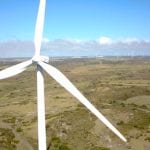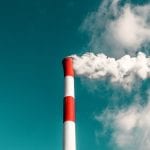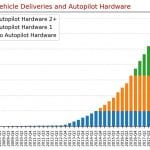Around The Web
EU Market: Stronger auction helps halt downward slide in EUAs
The unpleasant reason men navigate better than women
Denmark’s Orsted sees thermal output dip 11% as wind power ramps up
German government launches CER tender to offset travel emissions
Elusive nightjar back at RSPB Sandy reserve
Wildfires rage in the Algarve – in pictures
More than 1,000 firefighters are battling blazes for a seventh day in the popular tourist area in Portugal. Extremely high temperatures have been blamed for sparking the wildfires
Continue reading...Whale sharks feeding in the western Indian Ocean - in pictures
The world’s largest fish roams less than previously thought, new research has found. Using a ‘biological passport’, results show that whale sharks in the western Indian Ocean and the Arabian Gulf rarely swim more than a few hundred kilometres from their feeding grounds, making local action vital to their conservation
Continue reading...NZ Market: NZUs hit fresh record highs amid lack of supply, expected rule changes
Geoengineering, megafires and 'hothouse' Earth – green news roundup
The week’s top environment news stories and green events. If you are not already receiving this roundup, sign up here to get the briefing delivered to your inbox
Continue reading...New Zealand carbon permit surrender increases 36% as new rules begin to bite
Flow Power contracts 50MW from proposed Queensland wind farm
 Flow Power to take about half the output from new Queensland wind farm to deliver cheap renewable electricity to corporate customers in that state.
Flow Power to take about half the output from new Queensland wind farm to deliver cheap renewable electricity to corporate customers in that state. Prime Minister calls on Bill Shorten to reveal what he knew about Husar allegations
Great Barrier Reef: former board member describes $444m grant as 'unthinkable'
Michael Myer says size of grant ‘unheard of’ as Josh Frydenberg refuses to say where idea originated
The environment minister, Josh Frydenberg, would not say whose idea it was to award a $444m government grant to the Great Barrier Reef Foundation, on the same day a former member of the foundation’s board described the allocation as “unthinkable”.
Michael Myer, of the Myer family, was a member of the reef foundation’s board from 2001 to 2004 until he became concerned at what he called the growing “corporatist” direction of the organisation.
Continue reading...States being asked to approve NEG mechanism that increases emissions
 On top of that, the $150 average annual household saving the ESB claims is due to the NEG is illusory, and based on heroic demand assumptions.
On top of that, the $150 average annual household saving the ESB claims is due to the NEG is illusory, and based on heroic demand assumptions. Solar-integrated EV in works in Germany – and open to pre-order worldwide
 German start-up set to roll-out solar PV integrated electric vehicle – a "no frills" low-priced EV with 250km range and enough PV to power 30km/day if the sun's shining.
German start-up set to roll-out solar PV integrated electric vehicle – a "no frills" low-priced EV with 250km range and enough PV to power 30km/day if the sun's shining. Graph of the Day: Tesla sales over 360,000 worldwide
 Amid all the talk of taking Tesla private this week, the CEO has given the world a sneaky look at numbers not often seen in public.
Amid all the talk of taking Tesla private this week, the CEO has given the world a sneaky look at numbers not often seen in public. World’s biggest oil exporter bets $2 billion on electric cars
 The world’s biggest oil exporter has placed a massive bet on Tesla – the company whose entire goal is transitioning the world off of oil.
The world’s biggest oil exporter has placed a massive bet on Tesla – the company whose entire goal is transitioning the world off of oil. Big little lies: The rotten core that could kill the NEG
 The NEG, in its current form, proclaims to halt the energy transition in its tracks. It's a nonsense of course, but Australia needs a policy that recognises the future, not one that pretends to be able to stop it.
The NEG, in its current form, proclaims to halt the energy transition in its tracks. It's a nonsense of course, but Australia needs a policy that recognises the future, not one that pretends to be able to stop it. Jaguar says Australia interest in electric I-PACE more than any other product launch
 Jaguar unveils all-electric I-PACE in Australia, with deliveries set for “fourth quarter”, and reports of “interest” from 2,000-plus potential customers.
Jaguar unveils all-electric I-PACE in Australia, with deliveries set for “fourth quarter”, and reports of “interest” from 2,000-plus potential customers. 


